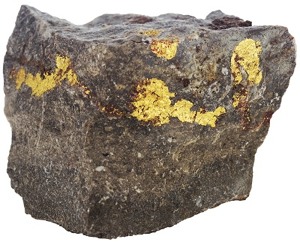Tavex uses cookies to ensure website functionality and improve your user experience. Collecting data from cookies helps us provide the best experience for you, keeps your account secure and allows us to personalise advert content. You can find out more in our cookie policy.
Please select what cookies you allow us to use
Cookies are small files of letters and digits downloaded and saved on your computer or another device (for instance, a mobile phone, a tablet) and saved in your browser while you visit a website. They can be used to track the pages you visit on the website, save the information you enter or remember your preferences such as language settings as long as you’re browsing the website.
| Cookie name | Cookie description | Cookie duration |
|---|---|---|
| tavex_cookie_consent | Stores cookie consent options selected | 60 weeks |
| tavex_customer | Tavex customer ID | 30 days |
| wp-wpml_current_language | Stores selected language | 1 day |
| AWSALB | AWS ALB sticky session cookie | 6 days |
| AWSALBCORS | AWS ALB sticky session cookie | 6 days |
| NO_CACHE | Used to disable page caching | 1 day |
| PHPSESSID | Identifier for PHP session | Session |
| latest_news | Helps to keep notifications relevant by storing the latest news shown | 29 days |
| latest_news_flash | Helps to keep notifications relevant by storing the latest news shown | 29 days |
| tavex_recently_viewed_products | List of recently viewed products | 1 day |
| tavex_compare_amount | Number of items in product comparison view | 1 day |
| Cookie name | Cookie description | Cookie duration |
|---|---|---|
| chart-widget-tab-*-*-* | Remembers last chart options (i.e currency, time period, etc) | 29 days |
| archive_layout | Stores selected product layout on category pages | 1 day |
| Cookie name | Cookie description | Cookie duration |
|---|---|---|
| cartstack.com-* | Used for tracking abandoned shopping carts | 1 year |
| _omappvp | Used by OptinMonster for determining new vs. returning visitors. Expires in 11 years | 11 years |
| _omappvs | Used by OptinMonster for determining when a new visitor becomes a returning visitor | Session |
| om* | Used by OptinMonster to track interactions with campaigns | Persistent |
| Cookie name | Cookie description | Cookie duration |
|---|---|---|
| _ga | Used to distinguish users | 2 years |
| _gid | Used to distinguish users | 24 hours |
| _ga_* | Used to persist session state | 2 years |
| _gac_* | Contains campaign related information | 90 days |
| _gat_gtag_* | Used to throttle request rate | 1 minute |
| _fbc | Facebook advertisement cookie | 2 years |
| _fbp | Facebook cookie for distinguishing unique users | 2 years |
How Is The Price of Gold Determined?

Gold is a precious metal that has been treasured by civilisations for centuries. Its enduring value and widespread use in jewellery, investment, and industry make understanding the factors that determine its market price crucial.
In this article, we will delve into the intricate process of how the price of gold is determined.
The Complex World of Gold Pricing

The price of gold is not determined by a single entity or a straightforward formula. Instead, it is influenced by a variety of factors, both fundamental and market-driven. Let’s break down these elements to gain a comprehensive understanding:
The Role of Supply and Demand
At its core, the price of gold is heavily influenced by the principles of supply and demand. When the demand for gold increases, and the supply decreases, prices tend to rise, and vice versa.
There are several factors that contribute to this dynamic:
#1 Jewellery and Industrial Demand

Gold has a rich history as a symbol of wealth and luxury, making it a popular choice for jewellery. Fluctuations in jewellery demand can have a significant impact on gold prices. Additionally, gold is used in various industrial applications, from electronics to dentistry, and changes in industrial demand can affect supply and demand dynamics.
#2 Investment Demand

Investors often turn to gold as a safe-haven asset during times of economic uncertainty. When geopolitical tensions rise, or financial markets become volatile, the demand for gold as a store of value tends to increase. This surge in investment demand can drive up gold prices.
#3 Central Banks and Government Policies

Central banks play a pivotal role in the gold market. Many countries hold gold reserves as part of their foreign exchange reserves.
Central bank policies, such as buying or selling gold, can influence the market
Additionally, government regulations related to gold production and export can impact supply and demand dynamics.
#4 The Influence of Mining

Gold is primarily extracted through mining, and the level of gold production can significantly affect its price.
Factors such as mining costs, geological challenges, and political stability in gold-producing regions can impact the global supply of gold.
#5 Financial Markets and Speculation
Gold is actively traded in financial markets.
Speculation by investors and traders can lead to short-term price fluctuations
Factors such as interest rates, currency movements, and macroeconomic trends can influence the sentiment surrounding gold and drive speculative trading.
Mechanisms for Gold Price Discovery
Now that we’ve explored the key factors influencing gold prices, let’s dive into the mechanisms by which gold prices are discovered in the global market.
#1 London Bullion Market Association (LBMA)

The LBMA is a prominent authority in the world of gold trading. It sets benchmark prices for gold twice a day, known as the London Gold Fixing.
These benchmark prices are established through a conference call involving major gold dealers
The LBMA provides transparency and integrity to the gold market.
#2 Commodity Exchanges

Gold is also traded on various commodity exchanges, with the most well-known being the COMEX division of the Chicago Mercantile Exchange (CME).
These exchanges offer futures and options contracts for gold, allowing investors to speculate on future price movements.
#3 Over-the-Counter (OTC) Markets

A significant portion of gold trading occurs in OTC markets, where buyers and sellers negotiate directly.
These transactions are less standardised than exchange-traded contracts and can involve large institutional players and central banks.
Key Takeaways
The price of gold is the result of a complex interplay between various factors, including supply and demand dynamics, central bank policies, mining activities, financial markets, and speculative trading. Understanding these elements is crucial for investors and anyone interested in the precious metal.
The price of gold is determined by a multitude of factors, making it a fascinating and dynamic market. From its historical significance to its role in modern finance, gold remains an asset with enduring value, subject to the forces that shape our global economy.
Keeping a watchful eye on these factors is essential for those who seek to navigate the world of gold investments and trading.
















